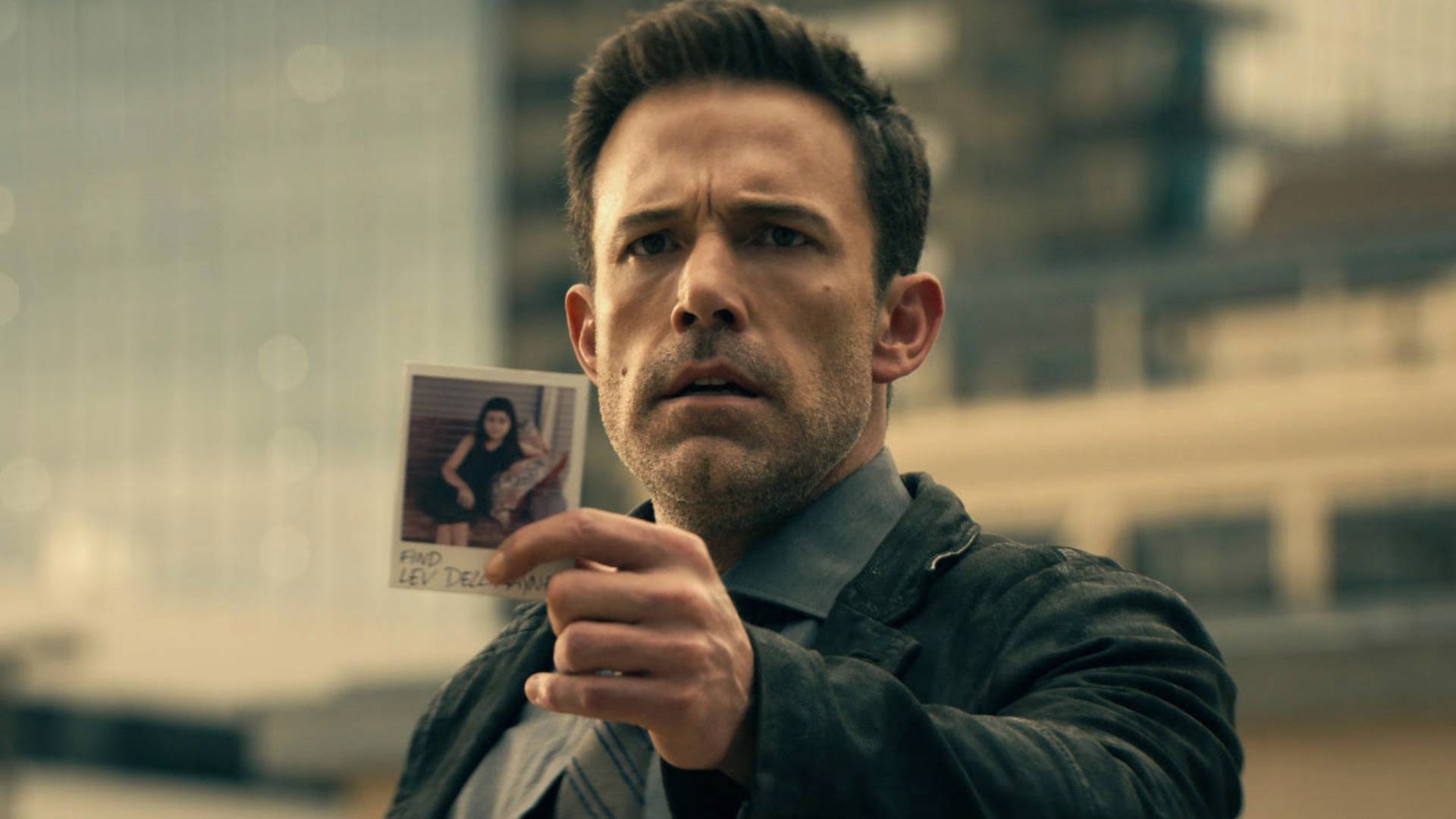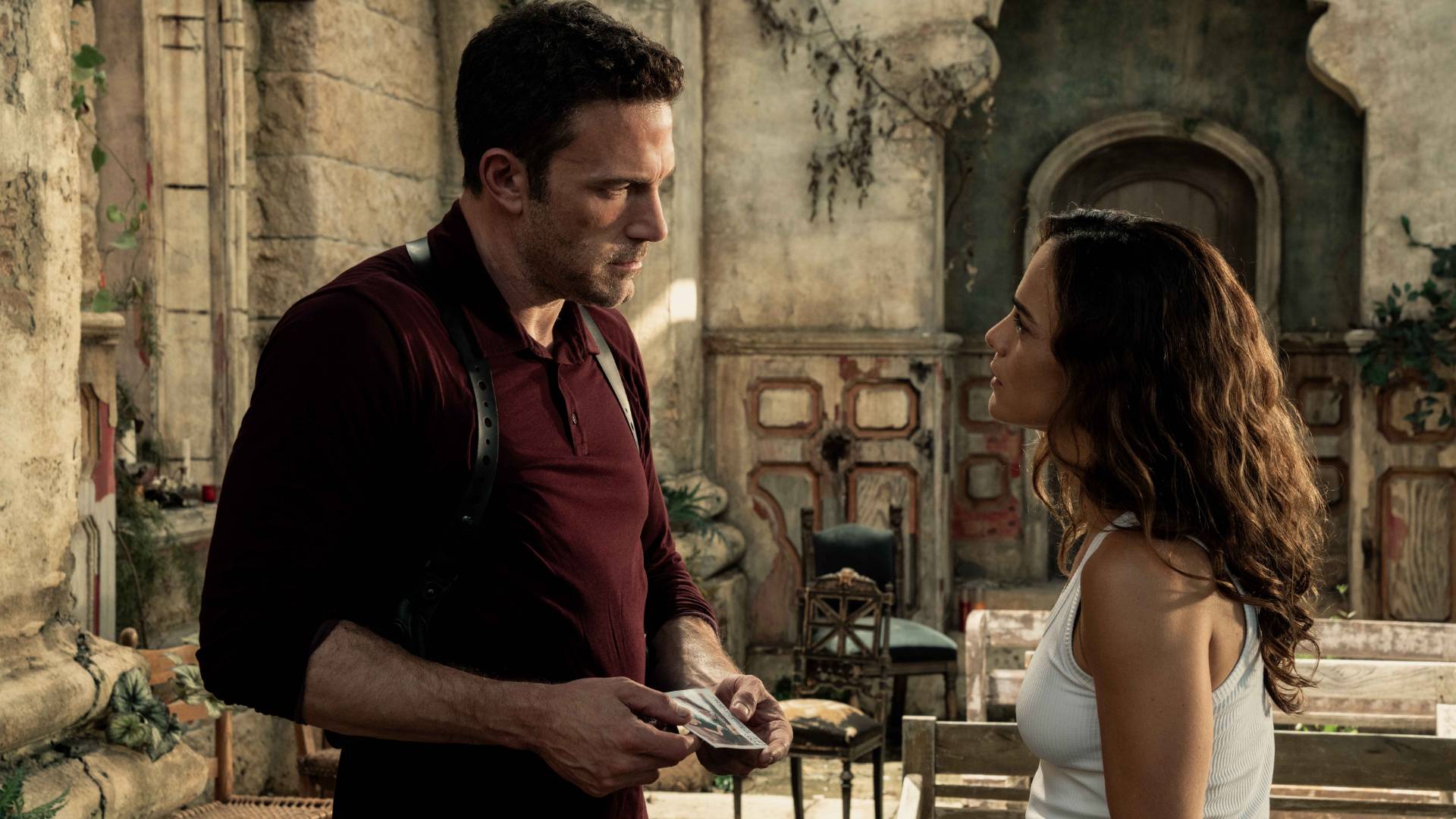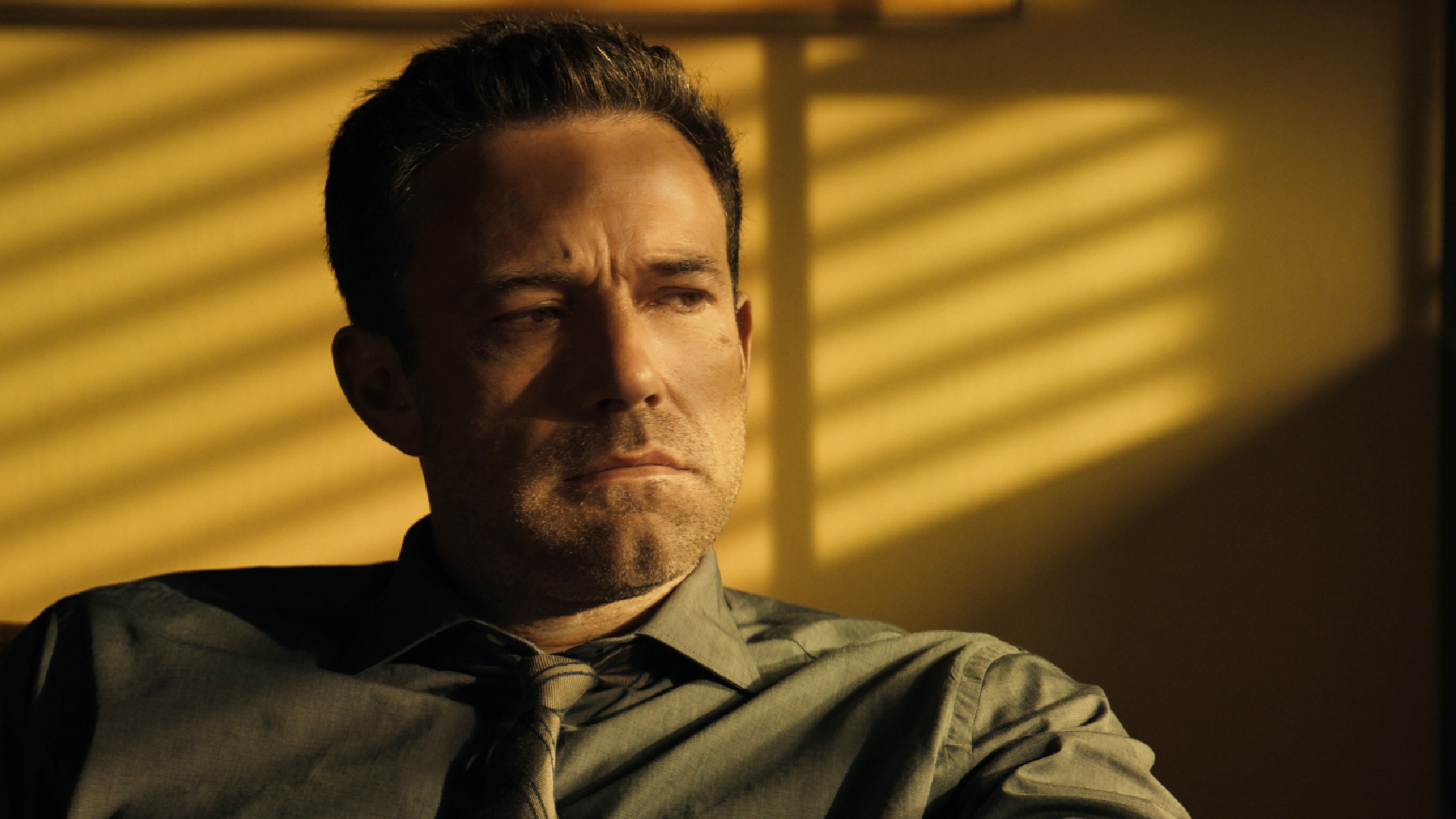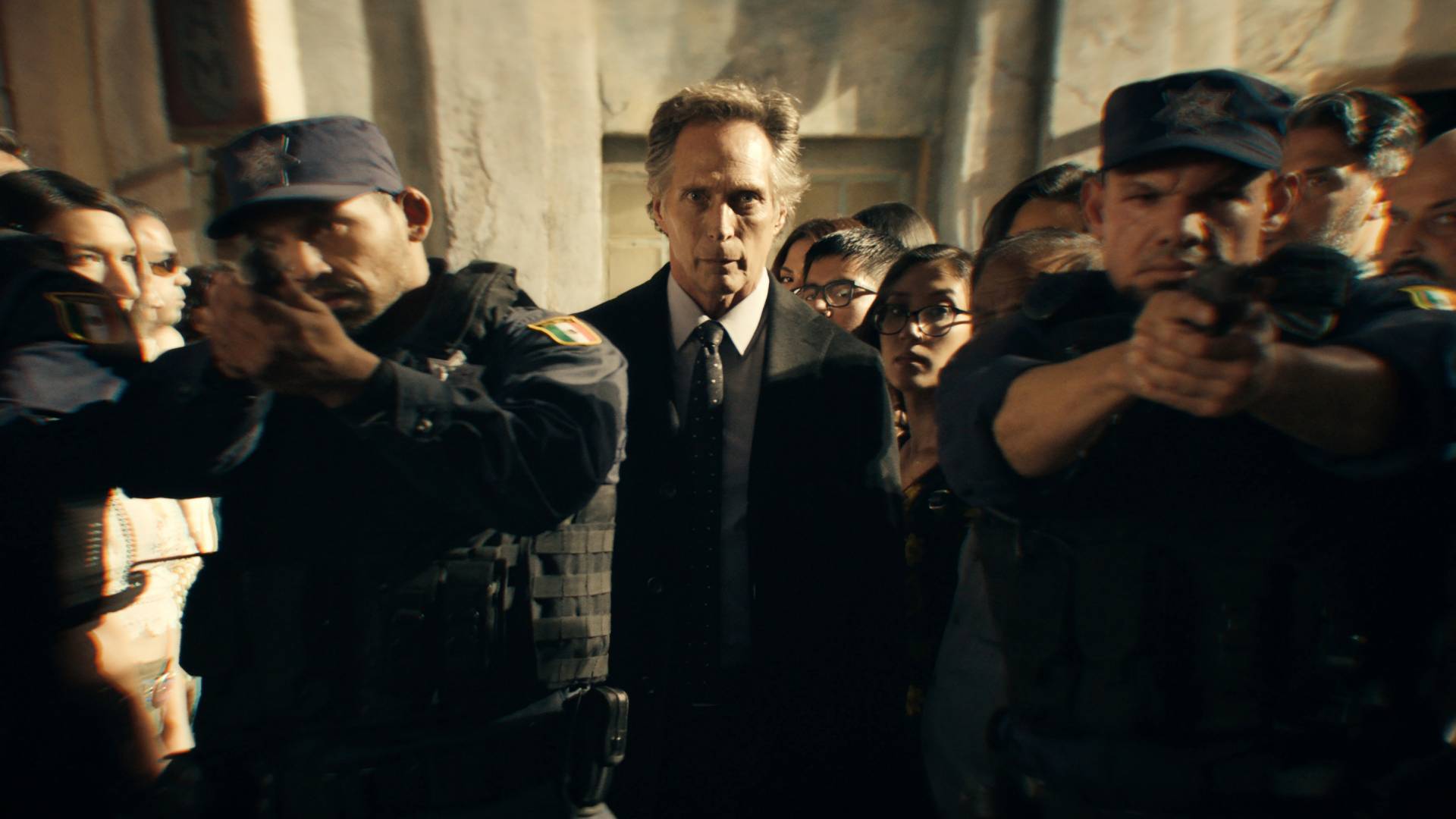
Robert Rodriguez is the mind behind the likes of Spy Kids, Sin City, and From Dusk Till Dawn, and now the director returns to our screens with Hypnotic, a twist-tastic new thriller starring Ben Affleck as a detective on the hunt for his missing daughter.
All is not as it seems, though, as Affleck's Danny comes into the orbit of hypnotics, people capable of incredible illusions using only the power of their mind. Alice Braga, William Fichtner, JD Pardo, and Jackie Earle Haley co-star.
We sat down with Rodriguez to talk all things Hypnotic on the Inside Total Film podcast, and our conversation touched on the film's family themes, Rodriguez's own children and their roles on the movie, as well as the process of bringing Hypnotic to life across two decades. We also spoke about the director's time on The Book of Boba Fett and those Alita: Battle Angel sequel hopes. Our full conversation is below, edited for length and clarity.

Total Film: This seems like quite a passion project for you. You first had the idea in 2002, and now, over 20 years later, the film is finally here. How would you describe the experience of bringing Hypnotic to the screen across the decades?
Robert Rodriguez: It's unprecedented. I've never had an idea for that long go unproduced. But I was glad I stuck with it, because it was just very satisfying in so many ways. And in a weird way, it feels like this was the perfect time to make it. I wouldn't have had all the answers I needed even five years ago, or the cast that I have. So everything's got its time if you're just tenacious and stick with it. I would have not known to tell people 20 years is fine. I would have said, 'Okay, maybe that's a little too long.' But now that it's happened, I go, 'Okay, 20 years, easily. Fine. It's not rotten yet.' [Laughs]
But it was just an idea that always grabbed me because I just thought, it reminds me so much about what we do. The more I made movies, the more it's like, what we do as storytellers: we create. Our job is to create a hypnotic construct for an audience that pays money to come see a construct. They know it's actors, they know it's lines, they know it's fake, but they want you to do your job well enough, hypnotise them enough, that they believe it's real enough to cry, or laugh, or tell their friends to go see it, come see it again and again. And sometimes they latch on to characters and worlds so much that they value them more than their own real friends. [Laughs] So that's pretty cool. So I thought, I want that to be in the movie, very meta, like when you start seeing the layers unveiling that you don't know what's real, what's not, and what's a construct and what's not. And that it's happening in the theatre, and it's happening within the movie to you as well.
It's really a film about family and a father's love for his daughter. Why did you want to put that at the heart of the film?
I didn't have a daughter yet, when I wrote the movie originally. And then later, as I was making it, I was like, 'Oh.' It didn't have the final twist in there, that I wanted to glean it back more towards family. It ended earlier. Some of the big twists in the movie changed the whole perception of it. And I wanted that element in there because it's just a big part of my life. I'm from a family of 10 kids, I've got five of my own, my youngest is my daughter. She always had these elaborate braids. A lot of that stuff is just like our relationship. She is magic. [Laughs] She has a lot of magical qualities. So I wanted just to have that aspect in there.
Speaking of family, I know your children were involved in production. How did you find collaborating with them creatively on the project? How has that evolved and changed? Because I know you have worked with them before.
They've been working with me since they could crawl. I mean, literally. They were stunt kids in the Spy Kids movies and actors, and they were already generating stories that became big screen movies since they were really little – seven, eight – for Sharkboy and Lavagirl. And then they grew into these positions where – I gave my kids piano lessons just to connect their left and right side of their brain, initially. I didn't realise that by starting them at the age of four, that they would become smoking composers and blow me out of the water and take my job from me! My son's so much better than me as a composer, that he now has that job full time.
My other son's my writer and co-producer, my other one's my co-editor, my other one designs my sets with this game engine. They're just way into stuff that has always been part of the family business. They're just my favourite collaborators, because the harder we work, the more time we spend together as a family. Most jobs would keep you from your family, the harder you worked at it. So by having them all part of it, we're just having a blast all the time and being creative, coming up with new stories, coming up with ways to make the process even better. They're innovating a bunch of ways they're going to help me make movies in the future that I wouldn't have thought of. So it's essential to my process to have them part of it.

The protagonist is played by Ben Affleck. How did he come aboard the project? Because without spoiling anything, it's a role that requires different versions of the same character in one performance as the story unfolds.
I picked him because of what you see in the first few scenes. It's a very driven detective, I knew he could do that. He's a star. That's what I loved about the Hitchcock movies. Hitchcock could make movies with non-stars, but when he did it at his best, it was with Cary Grant, James Stewart. So I thought, 'I need a star like that to really ground the movie.' And then the fact that he actually is a father and he's always talking about his kids, too – we talked about our kids all the time – that I knew that his genuine warmth as a father was the other side of that driven detective, so he was perfect. And he's from the '90s indie filmmaking. So when our schedule got really short, I knew he'd be able to do it, because he was used to shooting that way too, like I was.
Without getting into spoilers, there is a mid-credits tease that suggests the story isn't over just yet. Do you have plans to revisit the story again, or do you have ideas on where you might take it next?
I do. I do have plans. I didn't know if the mid-credit sequence was pushed too far down, and not everybody was going to see it. But I'm glad you got to see it, because I liked that part of it. I wish I'd put it a little earlier so people would [see it]. But yeah, it's pretty far down the credit line. Hopefully people see it. I'd love to do another one.
Because you did have this idea for so long, did Hypnotic go through a lot of different versions? Was there anything you ended up taking out or putting back in that really changed the project?
Yeah, you change things over time. A lot of the stuff that's still there, like the heist, him being a detective, him having a daughter that's lost, the scissors scene, some of the big twist – some of the later twist I think I mentioned I didn't come up with until later. But the DNA of everything was pretty much in there. As we came up with other ways to tell the story, some things changed. But yeah, it's just the natural progression of changes that happened, ending up with the final version being the definitive version for sure.
Why did you decide on putting these sci-fi concepts in with what seems, at first, to be quite a straightforward police thriller?
My whole trick has always been to have just a really big idea, no matter what size your budget was. So if you have a small budget or medium sized budget, just have a huge idea, because that'll just open up the film. So you don't need a big budget.
In fact, as our budget shrunk, it actually helped the movie to have just like a golf cart go around. [Laughs] It actually made the hypnotics that much more powerful, that they can fool people like that. So I thought, come up with a really big idea and have even elements that feel almost like sci-fi; it just makes the idea bigger. If you thought the movie was just going to be about hypnosis, you wouldn't expect that. So that's why the word hypnotic means it could be anything. It could mean people with very otherworldly powers.

I want to talk to you about Star Wars, because you were an executive producer and director on The Book of Boba Fett. How did you find the reception from fans and critics? Were you surprised by it at all, or was it what you were expecting?
I loved working on that one, and The Mandalorian was just the most fun I could ever have making anything. Because, also, it was right during COVID. Nobody was filming, so I would have just been sitting at home, and instead I got to go play with Star Wars characters. [Laughs] It was just a blast. John Favreau and Dave Filoni were just the best partners, they came up with all these incredible stories.
It felt like being a kid, but the magic doesn't go away. Even though you know how it's done, you see puppets and you see the strings, it still blows your mind. It's all from the world. They have so many artists that were on the original Star Wars movies that it doesn't lose its look. And so you could walk on a set and you'd feel like you were right there. I wouldn't trade that for anything. It was super fun, super exciting.
I also wanted to ask about Alita: Battle Angel, because I know there has been this really passionate fan campaign to have a sequel, and John Landau has said there is one coming and he's been talking to you about it. How is that coming along?
Yeah, we have been talking about it, so we would love to make one. We haven't set it for sure yet, but we're definitely hoping to and talking about it a lot. They're slammed with all the Avatar stuff, but they've definitely been engaging in it.
Hypnotic is in UK cinemas this May 26. In the meantime, check out our guide to all of 2023's upcoming major movie release dates for everything else the year has in store.
To listen to our interview with Rodriguez, check out the latest episode of Inside Total Film, available on:







